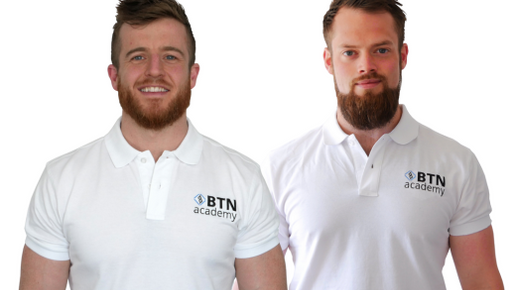
Is flexible dieting, aka IIFYM, healthy for you
Posted on | Last updated 12-12-2017In the fitness industry the awareness of an individual’s calorie intake has been a hot talking point for some time, and rightly so. By elevating calorie balance over food choice when talking to people, we have potentially reduced the chances of people resorting to binging on the foods that are ‘naughty’ when they cave in, and we’ve got real about why we might not be losing weight.
Generally this has stopped (somewhat) the focus on fad methods of losing weight, because pretty much everyone knows…
If you eat too much, you get fat, you under-eat, you lose fat.
That’s science. It’s not insulin. It’s not carbs. It’s not a lack of some BS thing, weight gain and loss come from calorie balance.
But in this process, I’ve seen something I don’t like, and as someone who entered this industry to teach others about the power and value of your health, it sits uneasy on me on a daily basis. It seems to be a big problem on Instagram, the posting ground for topless photos and stacks of pancakes and protein bars #IIFYM
While that is great, and crack on with your ab photos kids, it all seems so focused on what you can get away with while still getting shredded. “Hey look at me, I just ate this burger, and chips, and beer, and pudding, and it fit my macros, HA”.
Then the next post is about how they have loved coco pops since their childhood and its now their chosen cereal. Then the next post is their protein bar snack. And dinner is some nutrient-less concoction too.

Can you see where I’m going with this?
Yes, calories are key, but so is your health, and this is what frustrates me somewhat about the IIFYM movement. It feels like another way for a lot of people to be smug and elitist about their eating habits and the abs they’ve got.
Please remember, I’m not knocking IIFYM for a second, I practice it myself. If I’m going to go out for a burger I make it fit my daily calorie intake. If it doesn’t fit I tweak what I am eating the next day, or I’ll tweak something, somewhere that keeps me on the weight maintenance path.
But where is health in all of this?
For me 80-90% of my food intake is real food. Why?
Because that’s what the human body, ultimately, was designed to eat.
Real F***ing Food.
Yet so many Instagram coaches are, or what seems like, eating 30% real food and 70% protein bars, protein concoctions, burgers, beer and coco pops. So what’s the message here, are you trying to inspire people with their health and vitality, or literally just wanting to tell people that they can eat whatever they want, when they want, and maintain or lose their weight?
If that’s the case, god help the nutrition world.
It’s something you will never see me do. I value my health, energy, vitality and recovery too much. You can’t get optimal performance and recovery from eating 30-60% of your diet from crappy food, you just can’t (long term). So many coaches and fitness fanatics are focused on calories and macronutrients, but not on their micronutrients. And when I challenge people on this and where their micronutrient status is, they say “I eat a balanced diet, they’ll be fine”.
But will they?
Do you know your levels of all your micronutrients?
I did 23 seminars to a room of 15-65 people throughout the months of May, June and July in 2017 on my most recent nutrition seminar tour, and one of the questions I asked in that seminar was “How many people track their micronutrient intake and know where their levels are”.
On average I would get 2-6% of the room put their hand up, never more than 10% of the room, max. Yet 50-80% of the room would be tracking their calorie and macronutrient intake, daily.
So, lots of people are practicing ‘If It Fits Your Macros’ aka IIFYM, but are not practicing ‘If It Fits Your Micros’. And where does health come from? Both. Not just your coco pops, but what’s in your coco pops.

So, if you’re not tracking this stuff, your guessing, and you’ve no idea where your levels are and actually your levels could be way off, and the body will not yet be showing symptoms of that. But because you still have abs and can get your ass through a workout, you’ve no greater reason to question how you are feeling or performing.
But what if, for the last year, or longer, your omega 3 levels and magnesium status have been low, how has that affected your physical and mental performance, short term, and what might it do long term?
This is the million-dollar question, we know some of the things that can happen from low levels of micronutrients, but these things are so multi-faceted it’s hard to tell how it will really impact your own health.
Which begs the question, how much do you value your health?
I was at Sky TV delivering a talk the other day, and it was a sentence I repeated about 10 times throughout my talk (I just got an energy from the room that this was the key point to raise, so made it a large part of my talk). I wanted to ram home the point that we do what we do from a value proposition. If we don’t value our body and our health and your mental, physical and emotional well-being then we won’t make changes, we won’t expect and want more from our bodies. And thus we eat crap, don’t exercise and go to bed too late.
When you value your health and want to do the best by it, you’ll look for small wins and to make progress wherever possible, because you have likely been in a place where you took your health for granted, abused it a little too much, then had to work backwards and fix the issues you had created by treating your body like a garbage bin (and I know this, as a once obese and unhealthy guy).
I write this blog for two simple reasons:
- To challenge the teachings and ethos of the fitness industry and how it is currently behaving
- To challenge you on where your health is at, and where you want it to be
This is actually why I am pro supplements, to a degree. Don’t get me wrong I am 100% food first, and there is a totally valid argument that you can get everything you need from your food, but are we?
Like I’ve highlighted above, everyone is ASSUMING you can get everything from your diet, but can you? Have you tested it? Have you tracked it?

Whether that’s by using a calorie and micronutrient tracking app like ‘Chronometer’ or you get a nutrient test like on Medi-checks.com, then you don’t actually know, you’re just guessing.
I am someone that eats a brilliant diet, is super focused on his health, and also takes a potent multi-vitamin every day, (such as Awesome Daily Dose) and actually has normal levels of everything (I recently got it tested by Medi-checks, blog coming soon on this). But from what I see I am often the minority. Others are not so focused on health, or don’t take something to support their health, and generally live a much more stressful life than I do, so where are these peoples levels of micronutrients, and thus health?
Perhaps you should run a weeks worth of food through Chronometer and see where you’re at (Chronometer is a calorie, macronutrient and micronutrient tracking app), or get tested. I’m not saying you should, but a lot of people are making assumptions about their level of health, and I think this is misguided.
Assume nothing. Get the facts, think critically, and respond accordingly.
For example, we know a large % of the population is deficient in some key nutrients, mainly magnesium, vitamin D and omega 3 fats, so instead of assuming you are ‘ok’ because you eat a balanced diet, it would be safer to assume you are deficient because mean research data shows most are deficient.
But again, don’t assume anything or take anything at face value, run some tests, think critically, look at your diet, analyse your health. Be a proactive health advocate, want to take your health to the next level.
Because from what I see in my seminars when I go out on the road to teach the masses, there are a lot of people with abs and biceps, but few with their health and vitality.
Perhaps it's time to coin a new hashtag... #IIFYH 'If It Fits Your Health'
Our Nutrition Podcast

Join Tom and Ben from BTN on Ben Coomber Radio to learn all about nutrition, performance, health, and the latest science. A mix of guest and co-hosted shows. You'll learn a ton.
Listen now